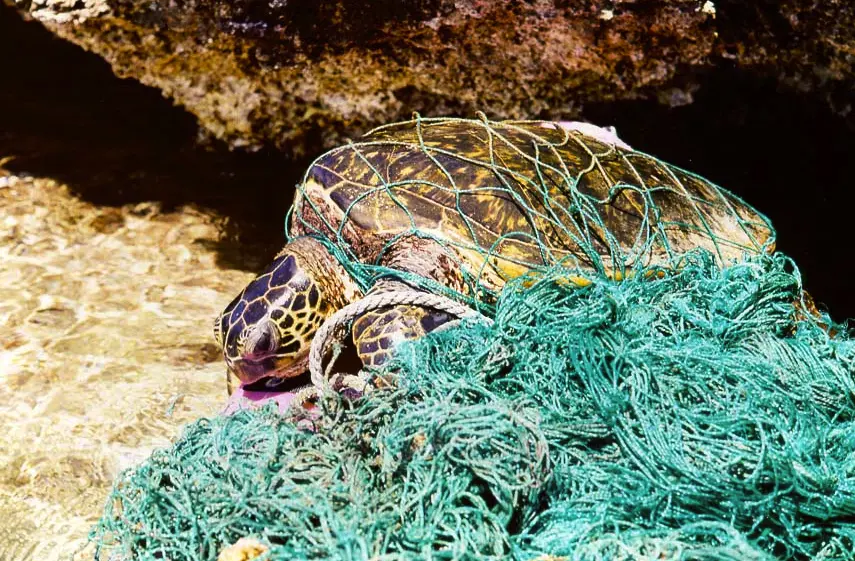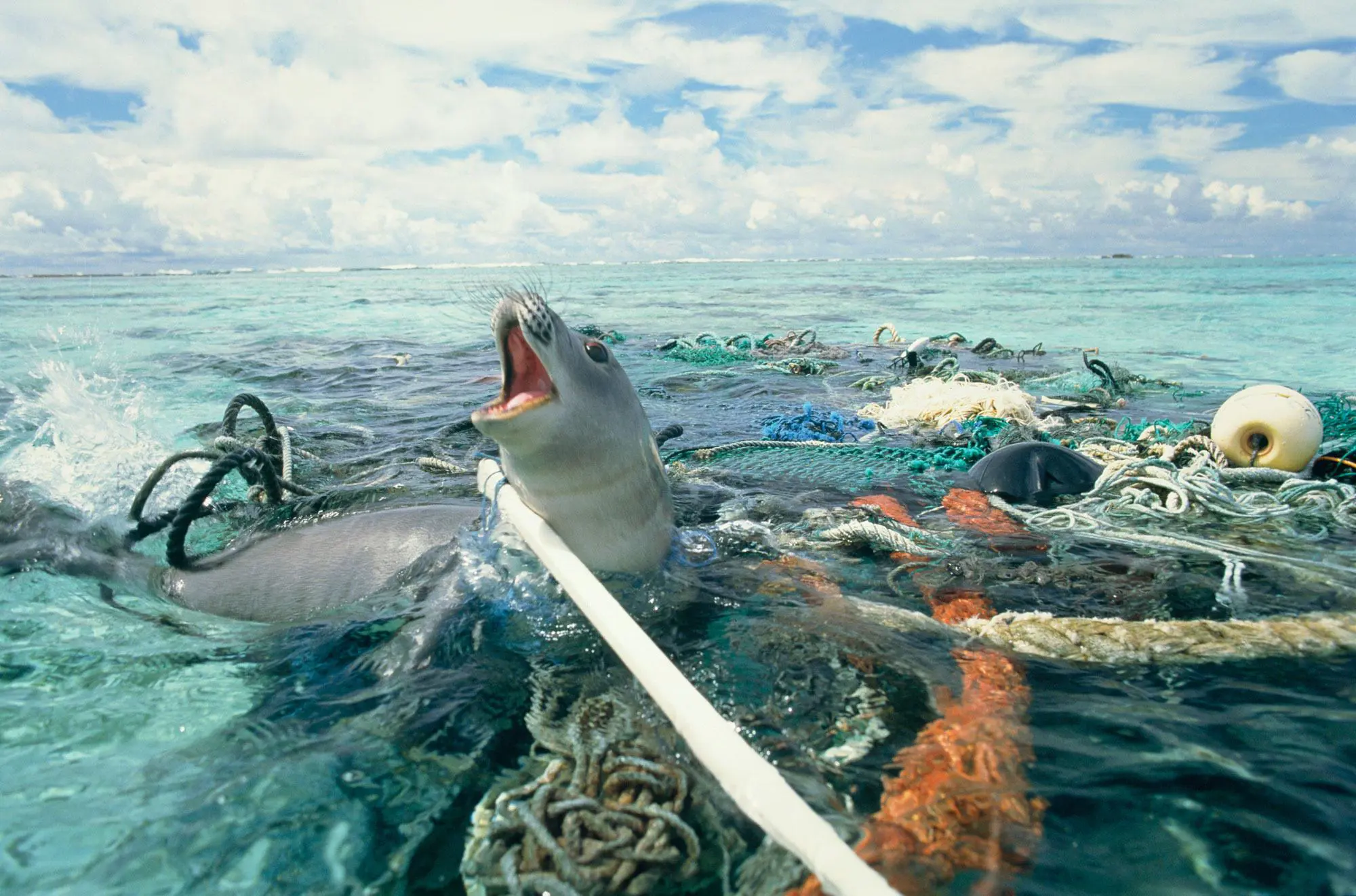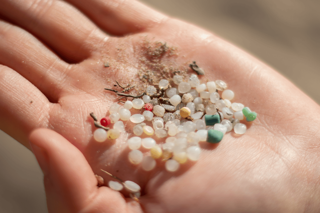Fishing nets used to be made from rope. But since the 1960s, they are made from nylon, a material that is much stronger and cheaper. Nylon is plastic and it does not decompose. That means that fishing nets lost in the ocean, called ghost nets, continue to catch fish for many years. Because of this, hundreds of millions of marine animals are killed or injured every year due to fishing nets pollution.
Tangled up in ghost nets
Ghost nets injure and kill marine animals. Marine mammals that become entangled in discarded fishing nets, such as dolphins, choke. Fish that get caught starve to death. All these victims, in turn, are easy prey for other animals. As a result, there is plenty of life around abandoned fishing nets, which only increases the chance of new victims. In northern Australia, three tons of ghost nets wash up for every kilometer of coastline. Six of the seven existing species of sea turtles live in this area. Turtles look for floating objects to hide under, and from these safe places, they look for food. But turtles do not know that ghost nets are anything but safe for them and they become entangled. Ghost nets also destroy corals because they become hooked on it. Powerful currents pull on the fishing nets in the ocean and tear off pieces of coral, damaging the reefs. Moreover, ships are also at risk when nets become stuck in their propellers.

The sad truth behind fishing nets pollution
The problem of ghost nets has been known for years. But research showed that none of the 15 largest fishing companies in the world are including this problem on their agenda, let alone are taking action to prevent their fishing nets from being left behind in the sea. And even though one company mentions the problem, none reports on it. Governments are also largely failing in this regard. Up until now, it has been impossible to identify from which ship a ghost net came from. As a result, governments cannot recover the clean-up costs and do nothing about the problem, which moreover occurs mainly in international waters. The sad truth is that as long as there is no effective international control system, fishing vessels can continue to dump their old nets into the sea with impunity.



